Patio Paver Installation Process for Residents of Massachusetts
Patio paver installation in Massachusetts adds elegance, curb appeal, and can lead to an increase in property value for residents from Sudbury to Plymouth. Pavers are also available in a wide variety of materials and creative design aesthetics.
Before we discuss the patio paver installation process, let’s first discuss what exactly patio pavers are and why they’re so popular among Massachusetts homeowners.

What Are Paving Stones?
Paving stones, generally made of a material such as brick, concrete, granite, or stone, are materials used at residential properties and commercial properties to enhance the landscape design.
Paving stones for backyard spaces, driveways, or pool decks are common due to their durability, sustainability, longevity, and ability to repel elements such as water, preventing long-term damage to your landscape design. Many pavers are stain-resistant as well!
There are many different types of pavers to choose from for patio paver installation, and the patio paver installation process can seem tedious. But with the right landscape design contractor, your new patio pavers will keep heads turning for decades to come.
By following these simple steps, learn how the patio paver installation process works before your contractor breaks ground for a complete understanding of the project scope.
What is the Patio Paver Installation Process?
Understanding the patio paver installation process can be helpful for both homeowners and your chosen landscape design contractor in Massachusetts. Many homeowners find that the install process operates more smoothly when they know what to expect from a contractor and their team.
Follow these helpful steps from Home Depot to learn more about the patio paver installation process:
- Prepare the Patio Area
- Clear Out Grass and Soil
- Add Paver Base
- Add and Level the Paver Sand
- Place the Paver Stones
- Cut Pavers
- Add Edging Stones
- Finish the Patio
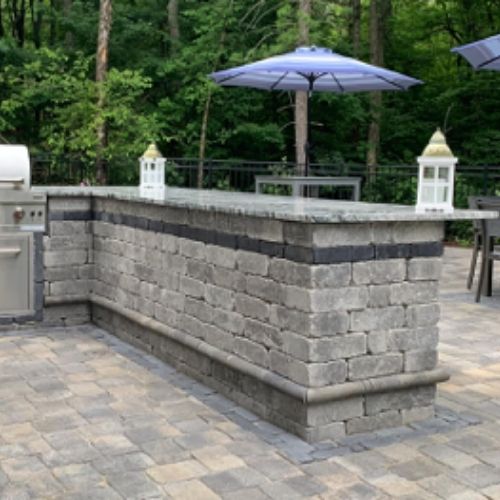
Are Paving Stones Durable and Long-Lasting?
The longevity and durability of pavers is dependent on a couple different factors:
- What type of paver you choose
- Are the pavers sealed?
Paving stones must be sealed to prevent staining and other damage. In fact, this is one of the most important steps during the paver installation process and is extremely beneficial for the longevity of each paving stone. Failing to seal your pavers may result in erosion, weed growth, mildew and mold build-up, and discoloration. Sealing pavers will help to ensure your patio, driveway, pool deck, or walkway pavers look fresh and new for years to come.
As for durability, some paver materials are more durable than others.
Popular paver materials like limestone, flagstone, and fieldstone aren’t recommended for high-traffic areas, while brick and concrete are considered the most durable.
There are many types of pavers available to homeowners in Massachusetts investing in a landscape design remodel.
Paving stones for your pool deck, walkway, driveway, or patio remodel are a surefire way to update your landscape design and enhance curb-appeal. For homeowners planning to sell, paving stones also increase the value of your home and can even help to reduce your carbon footprint!
To learn more about the patio paver installation process and other landscape design services in Massachusetts, visit the JM Mento Landscape Design Services page, and schedule a free consultation today! You can also contact Joe by calling 617-842-8123 or email him at joe@jmmentolandscapedesign.com.
Follow JM Mento Landscape Design on Facebook, Twitter, Instagram, Pinterest, and Houzz for project details and updates!


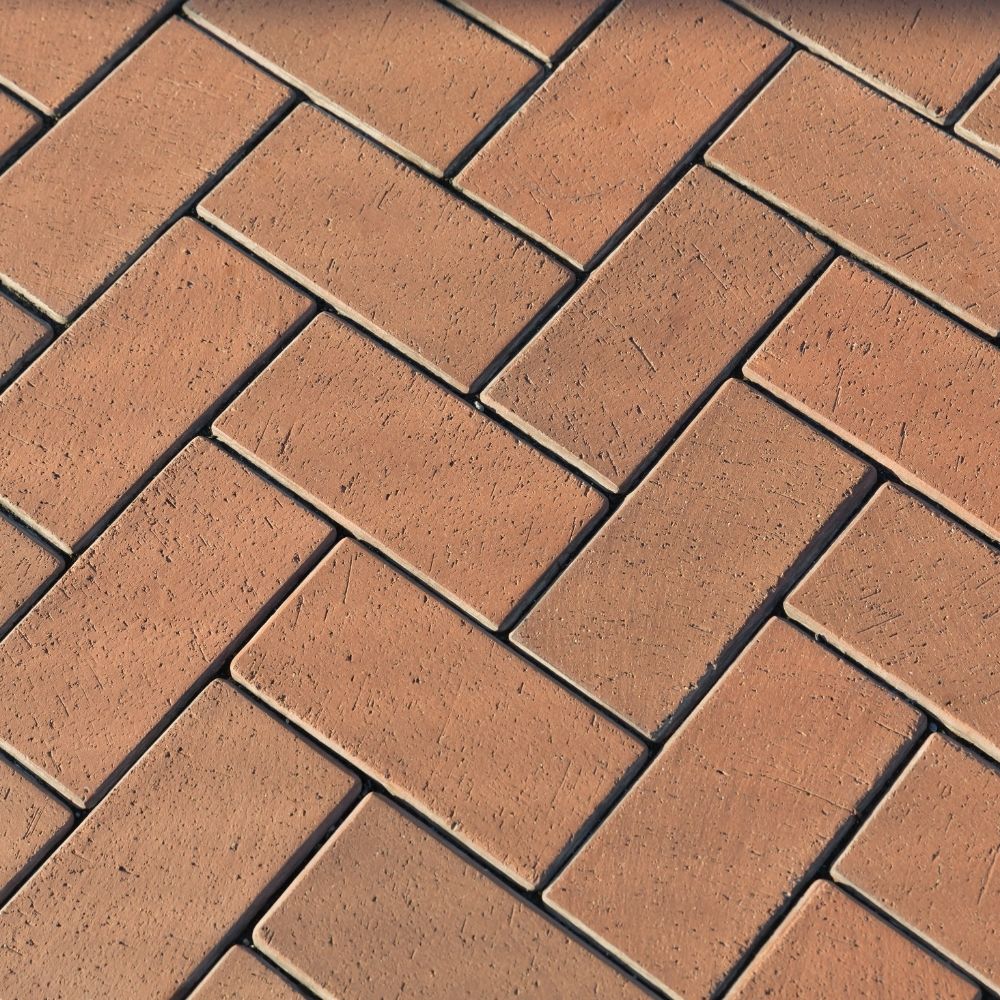
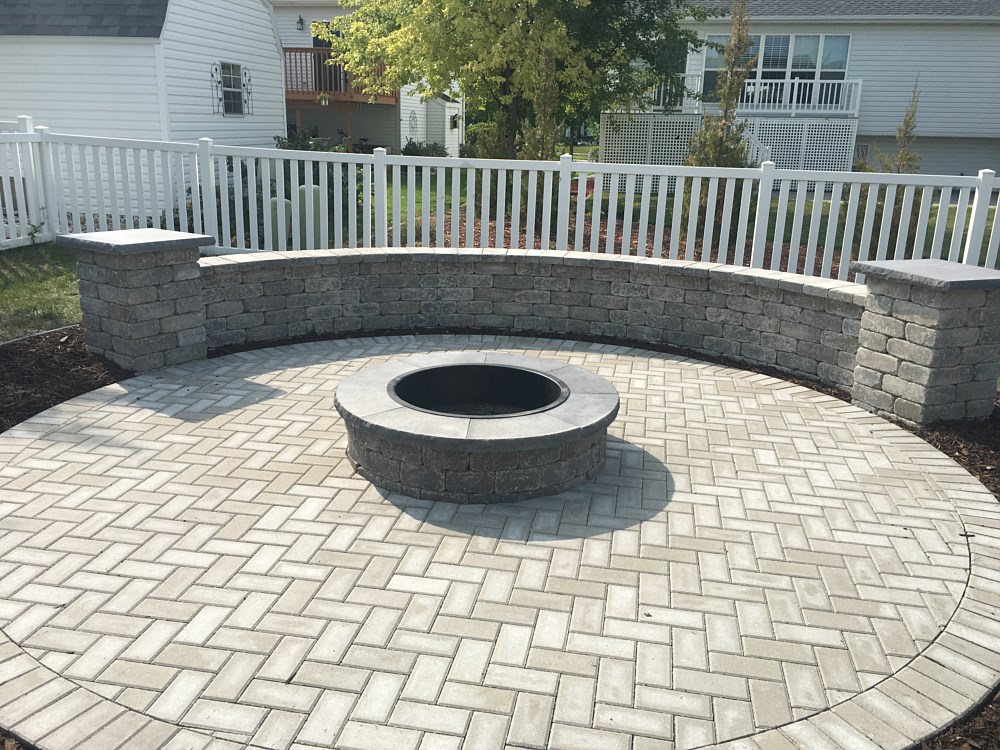
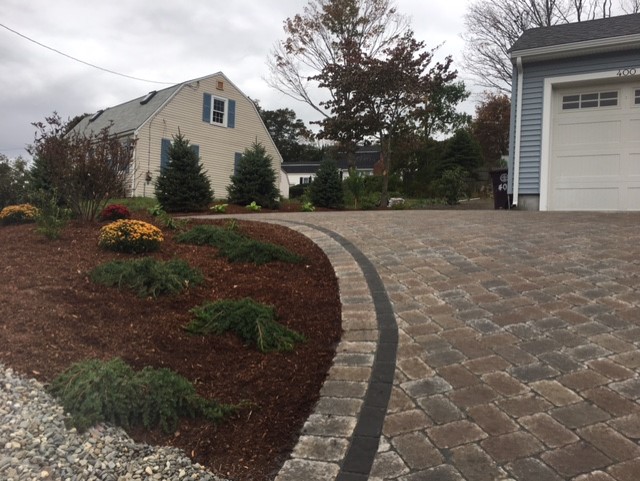
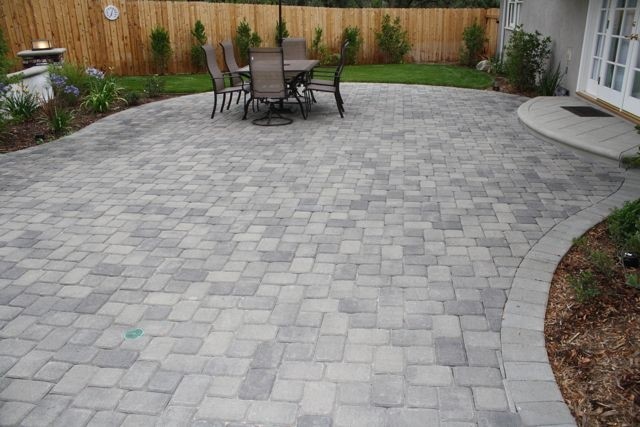
0 Comments